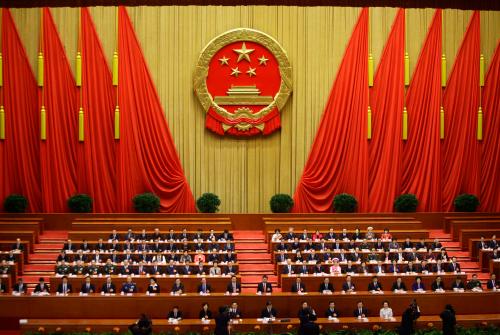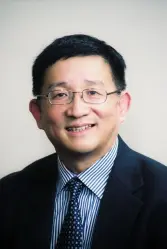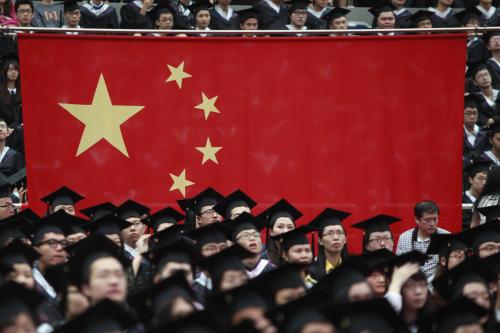It is entirely too premature to predict what will occur at the next Chinese leadership transition, in 2022. The outcome of this week’s 19th Party Congress can in fact be viewed as paradoxical. On the one hand, President Xi Jinping both cemented his status and elevated his thoughts on governance to a new level with their inclusion in the Party Constitution. But on the other hand, the composition of the newly-formed Politburo Standing Committee (PSC), China’s most powerful decisionmaking body, suggests that Xi compromised with competing factions. Two members of the PSC, Li Keqiang and Wang Yang, are protégés of former General Secretary Hu Jintao (2002-2012), whereas Han Zheng and Wang Huning—who advanced their careers through Shanghai—are confidants of Hu’s predecessor, Jiang Zemin (1989-2002).
Whereas the ideological indoctrination at the Party Congress alienated liberal intellectuals in the country, the leadership line-up reflects the unity and solidarity of the CCP leadership in the eyes of the public. The real question is whether Xi will continue to surprise us in his second term, as he did with his strong anti-corruption campaign, military reforms, and proactive foreign policy over the past five years. Domestic issues such as the structural rebalancing of the Chinese economy and foreign policy challenges like nuclear proliferation on the Korean peninsula will continue to test Xi.
Some may claim that this transition reinforces Xi’s status as a Mao-like figure. Yet today’s China is a profoundly different country than it was under Mao, and this makes any comparison between Mao and Xi both inadequate and inappropriate. Leaders need to keep abreast of the times and make adjustments when necessary, especially when trying to balance the needs and desires of various interest groups. Xi is doing just that.





Commentary
The paradoxical outcome of China’s 19th Party Congress
October 26, 2017